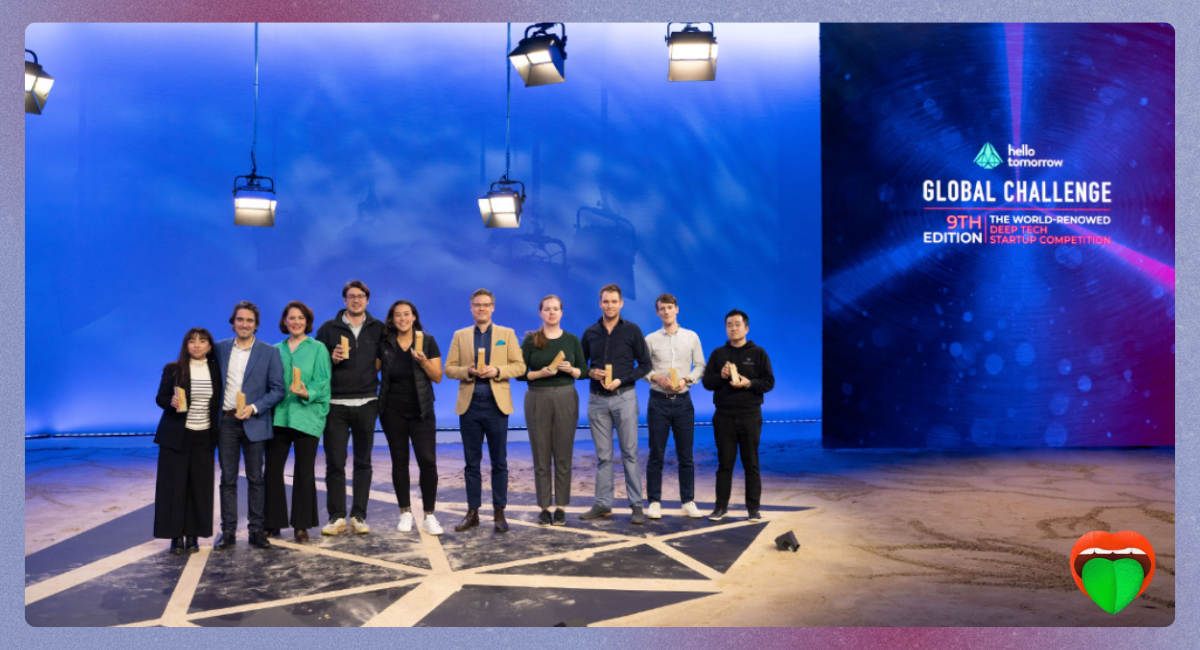These companies are revolutionizing, with innovative methods of making our economy more circular and less carbon-intensive, with state-of-the-art devices that can solve complex health challenges and powerful tools to advance further research and discovery. Challenging criteria and a jury composed of scientists, entrepreneurs, investors and industry leaders, has led to the selection of 10 projects with a strong sustainable impact, chosen among the 70 startup finalists that were selected from over 4,000 applications worldwide.
This year Hello Tomorrow has awarded €100 000 to the Grand Winner of their Global Challenge: tozero, for their groundbreaking process to recover critical materials from all types of lithium-ion batteries. They are able to take old batteries and reintroduce fresh, raw materials back into the supply chain.
For Arnaud de la Tour, Co-Founder & CEO Hello Tomorrow:
“The world has changed a lot since the first edition of the Hello Tomorrow Global Challenge, when not a lot of people cared about scientific entrepreneurship. The startups that have won
today are fortunate to rely on a global movement that supports their development: deep tech. These solutions are a priority for governments, large corporations and investors. In positive news this year, these three winners are all women-led startups. They won simply because they were the best out of over 4,000 applications, and I hope that this will inspire many other women to follow their lead. We need as many talented individuals as possible working on solving our greatest challenges, and all efforts possible to make the deep tech ecosystem more inclusive.”
Robeauté takes home the second prize, awarded by X, the moonshot factory. They are redesigning the future of neurosurgery by creating the new standard device that will provide surgeons with seamless access to delicate areas of the brain.
Jurata Thin Film is announced the winner of the third prize, their thin film technology is revolutionizing the storage and delivery of vaccines and therapeutics to people throughout the world.
Cambrium wins the special Boston Consulting Group (BCG) prize. Their mission is to trigger the next wave of material innovation by harnessing nature’s protein building blocks.
10 startups were awarded during the award ceremony
Winner of the “Advanced Computing & Electronics” category supported by Intel Ignite, Murata and Imec.xpand: FononTech (Netherlands) Reshaping 3D microelectronics with ultra fast printing resolutions.
Winner of the “Aerospace” category supported by Safran: ION-X (France) Developing a new type of small satellite propulsion with an ionic liquid electrospray thruster.
Winner of the “Digital Health & Medical Devices” category supported by Nitto: Robeauté (France) Developing a microrobot for novel therapies in hard-to-reach areas of the body.
Winner of the “Energy” category supported by Honda Xcelerator & GTT: Tozero (Germany) Bringing lithium-ion battery waste to zero.
Winner of the “Environment & Biodiversity” category supported by L’Oréal: Carbon Atlantis (Germany) Low-cost electrochemical approach for direct air and point source capture.
Winner of the “Food & Agriculture” category supported by Avril and Supernova Invest: Perfat Technologies (Finland) Offering food producers a new kind of solid fat with a superior nutritional profile.
Winner of the “Industrial Biotech & New Materials” category supported by Syensqo: TopoLogic (Japan) Developing innovative electronics using topological material.
Winner of the “Industry & Machines” category: InSpek (France) Improving bioprocesses through real-time monitoring with optical microchip sensors.
Winner of the “Medical Biotech & Pharmaceuticals” category supported by Biolabs: Jurata Thin Film (United States) New packaging to allow long-term storage of vaccines and biologics at room temperature or higher.
Winner of the “Sustainable Construction & Infrastructure” category supported by LEONARD: Photio (Chile) Using nanotechnology to simulate the photosynthesis process on any surface.
Building a collaborative ecosystem that leverages the power of deep technologies to tackle world challenges has been Hello Tomorrow’s mission since 2011. More information at: hello-tomorrow.org

